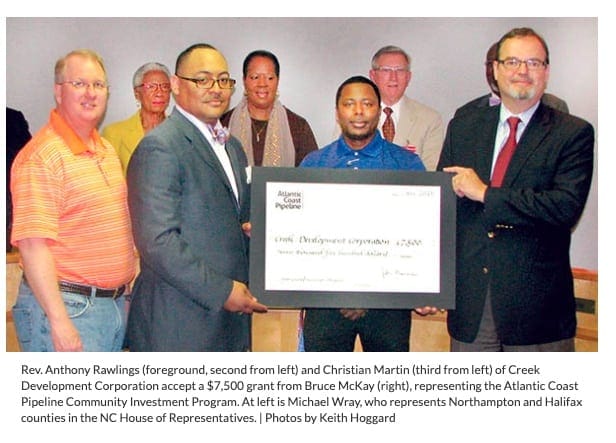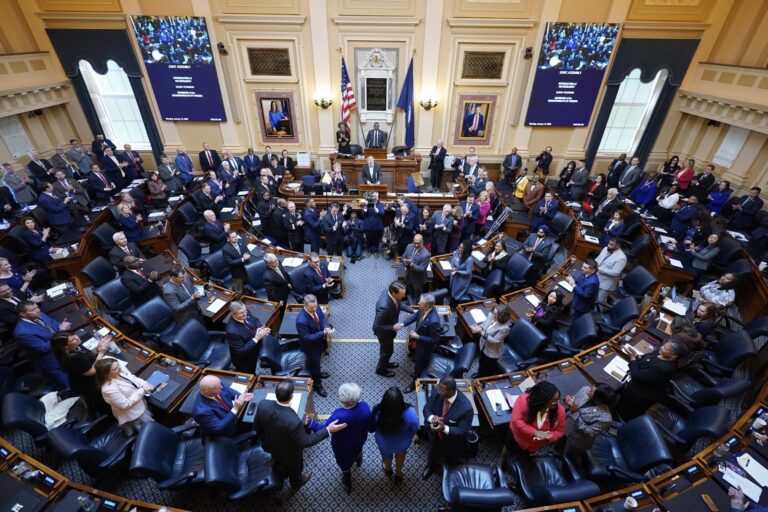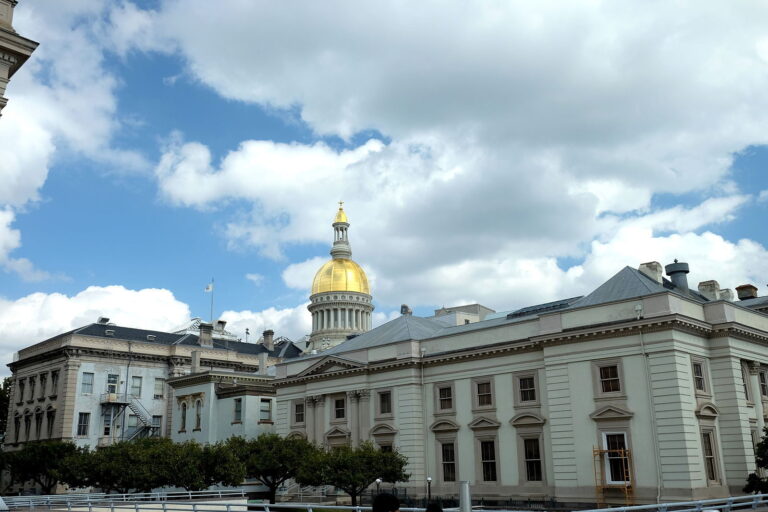Strings Attached: How utilities use charitable giving to influence politics and increase investor profits

Dominion Energy
Dominion is a utility company that serves more than 5 million utility and retail energy customers, providing electric service in Virginia and North Carolina and natural gas distribution across Utah, West Virginia, Ohio, Wyoming, and Idaho.
Basic Facts:
- EPI estimate of Dominion’s total charitable giving in most recent 5 years (2013-2017): $105,972,472. (1)
- Name of Foundation: Dominion Energy Charitable Foundation, aka Dominion Charitable Foundation or Dominion Foundation
- Dominion Energy Charitable Foundation Giving (2013-2017): $75,129,860. (2)
- Dominion Energy Charitable Foundation: $39,512,928
- 2017: $16,406,964
- 2016: $14,957,606
- 2015: $8,148,358
- Dominion Foundation: $35,616,932
- 2015: $5,969,156
- 2014: $14,675,540
- 2013: $14,972,236
- Dominion Energy Charitable Foundation: $39,512,928
- Corporate Charitable Giving (2013-2017)
- Sum of total corporate charitable giving according to Corporate Responsibility Reports (2013-2017): Not available. (3)
- 2017-2018: $10,000,000. (4)
- 2016-2017: None reported. (5)
- Sum of total charitable giving in most recent 5 years according to FERC Form 1 and Form 60 filings (2013-2017): $30,842,612. (6)
- 2017: $8,917,004. (7)
- 2016: $7,299,310. (8)
- 2015: $7,528,486. (9)
- 2014: $3,158,487. (10)
- 2013: $3,939,325. (11)
- Sum of total corporate charitable giving according to Corporate Responsibility Reports (2013-2017): Not available. (3)
- Dominion Energy Charitable Foundation Leadership:
- Hunter A. Applewhite, President of the Dominion Energy Charitable Foundation. He is also Dominion Energy’s Director of Community Engagement.
- Katharine Bond, Executive Director of the Dominion Energy Charitable Foundation. She is also Senior Policy Director for Dominion Energy and a registered lobbyist for the company.
- Dominion Energy Charitable Foundation Board of Directors:
- Robert M. Blue, Dominion Energy Executive Vice President and Co-COO (effective December 1, 2019). Previously, President and CEO of Power Delivery.
- David A. Christian, Dominion Energy ex-Executive Vice President and Chief Innovation Officer
- Paul D. Koonce, Dominion Energy Executive Vice President and President and CEO of Power Generation. Previously, CEO of Dominion Energy, Chair of the Interstate Natural Gas Association, and the Southern Gas Association.
- Diane Leopold, Dominion Energy Executive Vice President and Co-COO (effective December 1, 2019). Previously, CEO of Gas Infrastructure. Also, a Board and Executive Committee Member of the American Gas Association. Previously, Chair of the Interstate Natural Gas Association of America.
- Mark F. McGettrick, Dominion Energy ex-Executive Vice President and Chief Financial Officer.
- Carter M. Reid, Dominion Energy Executive Vice President and Chief of Staff, and Dominion Energy Services President (effective December 1, 2019). Previously, Dominion Energy Chief Administrative and Compliance Officer, and Dominion Energy Services Corporate Secretary.
- Daniel A. Weekley, Dominion Energy Vice President of Energy Innovation Policy and Implementation. Previously, Vice President of Government Affairs, and Vice President and General Manager of South Carolina Pipeline Operations.
- Cindy Balderson, Dominion Energy Manager of Philanthropy and Community Partnerships, and Dominion Energy Charitable Foundation Secretary.
- Mark O. Webb, Dominion Energy Senior Vice President of Corporate Affairs and Chief Innovation Officer.
Examples of Dominion using charitable giving to manipulate policy:
2015 “Rate Freeze” Bill
In 2015, Dominion successfully lobbied for Virginia legislation to freeze base rates and suspend biennial reviews of company profits by the State Corporation Commission (SCC) through 2022. The utility argued this measure would provide a “transition period” to prepare for implementation of emissions reductions mandated by the Clean Power Plan. The SCC found that the law generated at least $365 million in utility over-earnings in a 2018 Commission report.
A slate of Dominion-supported non-profits lined up behind the bill, providing supportive comments at legislative hearings. One such group was Senior Connections, a local organization that supports seniors to remain in their homes and received $90,000 from Dominion’s foundation between 2013-2016. A Dominion community affairs liaison also sits on the group’s Board, and Senior Connections has received a Dominion-funded award from the Virginia Office for Aging Services. Senior Connections has also been selected by Dominion as an EnergyShare bill assistance partner agency. As reported by the Richmond Times-Dispatch, providing comments in support of the legislation, a community relations specialist with Senior Connections said utility bills present a challenge for many of their clients, and “[w]hat [Senior Connections is] interested in is anything that stabilizes rates in a volatile environment.”
Better Housing Coalition, Richmond’s largest non-profit community development corporation, also testified in favor of the rate freeze. The organization received $47,000 from Dominion’s foundation between 2013-2015.
In addition to local community groups, Dominion shored up support for its rate freeze bill from large and influential statewide non-profits, including the American Red Cross. Dominion’s foundation donated $548,500 to the Red Cross nationally between 2013-2017. Red Cross regional CEO Reginald E. Gordon spoke in support of the Dominion-friendly legislation before the Virginia Senate Commerce and Labor Committee, arguing a rate freeze would benefit struggling ratepayers and households on fixed incomes. The Richmond Times-Dispatch reported that Gordon has praised the utility as “a good corporate friend.”
The Virginia Chamber of Commerce likewise supported the bill, per the Associated Press – according to CEO Michel Zajur, on its own merits. Dominion is a highest-tier “Pinnacle” investor in the Chamber, and between 2013-2017, the utility’s foundation gave at least $25,000 a year to the Virginia Hispanic Chamber of Commerce or to the Chamber’s own foundation.
Table 1: Dominion Foundation Contributions to Select Rate Freeze Supporters, 2013-2017
| American Red Cross | $548,500 |
| Better Housing Coalition | $47,000 |
| Senior Connections | $90,000 |
| Virginia Hispanic Chamber of Commerce/Foundation | $100,000 |
| Total | $785,500 |
Atlantic Coast Pipeline
Dominion is the largest percentage owner of the Atlantic Coast Pipeline, which would transport fracked gas from West Virginia to Virginia and North Carolina, and possibly further south. The utility is responsible for its construction, operation, and a massive outreach program to build public support. Fraught with permitting obstacles and well-organized opposition, Dominion’s largest-ever capital project has ballooned in cost to over $7 billion.
In an unprecedented outreach bid reported by the Associated Press, Dominion has distributed $2 million in grants to communities along the proposed path of the Atlantic Coast Pipeline through its Community Investment Program, in concert with project partners Duke Energy and Southern Company. At least four of the grants have been awarded to groups publicly favoring the pipeline or affiliated with its supporters. In North Carolina, economic development director of Northampton County Gary Brown testified in support of the pipeline during public hearings in Jackson and Rocky Mount. Brown is the Board President of The North Carolina Center for Automotive Research, which was at the same time under consideration for a program grant from Dominion’s Community Investment Program and ultimately received $1,680, as reported by NC Policy Watch, a news and commentary project of the North Carolina Justice Center. In March 2016, Brown told the Roanoke-Chowan News-Herald that “Atlantic’s decision to place its operations center in Northampton County is impressive and certainly welcomed. The project is critically important in serving the energy needs of residents, business and industry in the state and region, present and future. We appreciate the opportunity to be a part of that, and the trust they have placed in us.”
Similarly, the Boys and Girls Club of Lumberton was awarded $10,000 by the program, earmarked for hurricane repairs. At a North Carolina Department of Environmental Quality meeting, Executive Director Ron Ross testified in favor of the Atlantic Coast Pipeline. “We didn’t ask them if they wanted to give us money – they asked us,” he told the Associated Press.
Meanwhile, Dominion closely coordinated the optics of its non-profit giving to maximize impact. Correspondence obtained by the Associated Press from Brown to a pipeline public relations manager working on the grant program suggests bundling several smaller gifts to the county – about $5,000-$10,000 each – for a photo opportunity: “As it is a show piece, how about a prop check written to ‘Northampton County’ for the total of all grants — larger total – bigger image – greater perceived impact.” In a 2017 presentation to the American Gas Association, Dominion’s Senior Energy Policy Director Bruce McKay expounded on this strategy, explaining that the utility “[m]ust create and maintain a political environment which allows permitting agencies to do their work,” and “[i]f you want fair media coverage, you need to pay for it.” In an interview with the Washington Post, McKay further defended the utility’s capture of community groups as a response to opponents’ grassroots environmental organizing: “On the other side, the Sierra Club, on any given day you can go to their web site and find 10 or 12 take-action boxes.”
The Peter Paul Development Center: Charitable Giving Connected to Legislator Favors
A small charity, whose senior leadership includes a Virginia state legislator sponsoring a Dominion-backed rate bill, received hundreds of thousands of dollars in donations – both from Dominion’s foundation and its CEO Tom Farrell. Delegate Lamont Bagby (D-Henrico) is Director of Operations for the Peter Paul Development Center, which runs programs for disadvantaged children and community members on the east side of Richmond. Bagby also chairs the Virginia Legislative Black Caucus. In 2016, Farrell made a $100,000 gift to the center, with Dominion’s foundation also donating $25,000, as reported by the Richmond-Times Dispatch. Both have made previous donations to the group, but they were under $5,000. A former Dominion senior executive sits on the Peter Paul Development Center Board, and says she encouraged the utility’s foundation to increase their largesse to the organization.
In the 2018 General Assembly session, Bagby co-patroned a bill with Del. Terry Kilgore (R-Scott) that Dominion had helped to author. Bagby has not otherwise patroned or co-patroned any energy legislation since his election to the office in 2015. An analysis by the State Corporation Commission concluded that “The legislation allows the utilities to keep future excess earnings (i.e. customer overpayments) and, rather than return them to customers, use them for capital projects chosen by the utility.” The legislature passed the bill into law in 2018.
Union Hill Compressor Station: Influence-Seeking with Virginia NAACP
Since 2014, Dominion has sought to rally local leaders in support of a gas compressor station key to its Atlantic Coast Pipeline in Virginia’s historically Black Union Hill community, which was settled by the formerly enslaved. The Virginia state conference (VSC) of the National Association for the Advancement of Colored People (NAACP) initially opposed the project. In comments to the Virginia Department of Environmental Quality filed in May 2018, VSC NAACP then-President Kevin Chandler wrote that the ACP “grossly neglect[ed] the magnitude of…massive disruptions to surrounding communities,” and called for an immediate stop to construction.
On November 21 of the same year, however, Chandler wrote Governor Ralph Northam that his organization was “satisfied with the progress and efforts Dominion Energy has made to work with the key stakeholders and residents in the Union Hill community.” This letter came less than two weeks after Dominion proposed to tie a set of $5.1 million “community enhancement” investments in Union Hill to its receipt of a pending air permit for the compressor station. Chandler’s letter touted additional partnerships between the VSC NAACP and Dominion, including “STEM workforce development in the minority community and increasing community awareness on energy, sustainability and environmental justice issues.” Figures for Dominion’s giving to the VSC NAACP are not reported in the utility’s foundation tax filings or corporate political disclosures, but a Dominion spokesman told the Richmond Times-Dispatch in October 2019 that it has supported the group for “nearly 30 years”.
Facing criticism for its muddled stance, the VSC NAACP issued a November 30, 2018 clarification letter casting media representations of Chandler’s letter as “incorrectly suggest[ing] that the VSC NAACP had modified its longstanding and unequivocal opposition to both the Union Hill Compressor Station and the ACP.” Chandler blasted Dominion for invoking the NAACP as a “political pawn”. Speaking to Blue Virginia, a pair of prominent VSC members alleged The Washington Post’s breaking coverage of the letter bore “Dominion’s fingerprints”:
“What we’re seeing here is a blatant attempt by Dominion Energy to co-opt the NAACP into a narrative that benefits their shareholders at the cost of the health and lives of black people. We often talk about how Dominion misinforms legislators, and misdirects them with carrots that look good on paper. They also do this to organizations, and they’re currently trying to do it to one of the longest-standing civil rights organizations in our nation’s history.”
Following this incident, the VSC NAACP has consistently rejected the compressor station and pipeline in its statements. However, the group has abided – or according to a utility spokesman, invited – repeat Dominion sponsorship of its annual state conference. The company gave $50,000 to sponsor a co-branded pre-conference event in October 2019, which was picketed by environmental justice advocates and Union Hill community leaders.
In a petition with over 300 signatures, letters from VSC members to leadership, and a series of Richmond Times-Dispatch reports, they called the partnership “a slap in the face to Union Hill and people of color,” “sacrilegious,” and “completely counterproductive to the NAACP’s purported commitment to environmental justice and civil rights”. In response to the outcry, VSC NAACP President Robert Barnette acknowledged Dominion’s “dismal record in environmental justice,” but claimed accepting utility money “is not a reason for us not to hold them accountable for things that they do that are not to our benefit.”
Ratepayers Bear Cost of Charitable Capture
In Virginia, Dominion customers have subsidized hundreds of corporate charitable contributions made by the utility, independent of its foundation. Between 2011-2012, the State Corporation Commission approved Dominion’s request to charge ratepayers $1.37 million, pre-tax, for donations made by Dominion as part of the utility’s “cost of service,” as reported by the Associated Press. This sum included $4,000 of a $10,000 donation to the Appalachian College of Pharmacy in 2012, where Dominion legislative champion Del. Terry Kilgore (R-Gate City) was a paid fundraiser. Kilgore’s annual salary from the school around the time of the donation was $126,000.
Another lawmaker, Del. Matthew James (D-Portsmouth), was CEO of the Peninsula Council for Workforce Development, a regular recipient of Dominion giving. The utility attempted to charge ratepayers for a $7,500 donation that Dominion made to the Peninsula Council, which ultimately funded a Walt Disney Company workforce development seminar. In 2015, James patroned additional rate freeze legislation that would have benefited the utility, which was also his largest campaign contributor.
The Virginia Alliance for Tort Reform received a $40,000 donation from Dominion in 2012 – $16,000 of which was paid for by Dominion customers. The now-defunct group lobbied for pro-business policies, with long-time Dominion lobbyist Bill Thomas among its ranks.
In 2015, SCC staff filed testimony arguing against Dominion’s recovery from customers of $3.3 million of its 2013-2014 corporate charitable donations, finding “many of the donations made by the company were to organizations that conduct political or lobbying efforts,” in addition to being inconsistently and opaquely reported. Due to the rate review freeze legislation championed by Dominion, this review would be the SCC’s last such opportunity for seven years. With the matter under SCC review, Dominion announced in September 2015 that it would no longer seek to recover corporate charitable giving through ratepayer bills. In filed testimony, Dominion Virginia Power President Paul D. Koonce explained, “Some have cynically suggested that certain charitable organizations to which we have contributed are motivated not by the civic good but instead by political considerations. We do not agree with those suggestions or that our charitable giving practices are anything other than well-intentioned.”
Footnotes
(1) Estimate based on Dominion’s foundation tax returns (Form 990) and corporate charitable giving reported to federal energy regulators (FERC Forms 1 and 60).
(2) In 2015, Dominion’s charitable arm re-incorporated from an IL trust to a VA non-profit corporation. Functionally, the organizations did not overlap in operation and have nearly identical Boards. Giving by each entity is broken out by the now-defunct Dominion Foundation (EIN 13-6077762) from 2013-2015, and the active Dominion Energy Charitable Foundation (EIN 47-2746460) from 2015-2017.
(3) Dominion’s earliest available Sustainability and Corporate Responsibility Report is for 2016-2017.
(4) In its 2017-2018 Sustainability and Corporate Responsibility Report, Dominion discloses $30 million in total charitable giving, including $20 million through its foundation. This foundation figure differs from the total recorded by the charity’s 990 tax form, which is ~$16.5 million per 990. The reason for the discrepancy is unknown. The Dominion report indicates the utility spent $8.8 million on energy assistance programs, which is included in the $10 million non-foundation figure.
(5) In its 2016-2017 Sustainability and Corporate Responsibility Report, Dominion discloses $20 million in charitable giving through the utility’s foundation, but does not report any direct corporate charitable giving.
(6) Includes Virginia Electric and Power Company ($22,019,057) and Dominion Resources Services, Inc. ($8,823,555)
(7) Includes Virginia Electric and Power Company ($6,636,470) and Dominion Resources Services, Inc. ($2,280,534)
(8) Includes Virginia Electric and Power Company ($5,560,352) and Dominion Resources Services, Inc. ($1,738,958)
(9) Includes Virginia Electric and Power Company ($5,305,814) and Dominion Resources Services, Inc. ($2,222,672)
(10) Includes Virginia Electric and Power Company ($1,977,450) and Dominion Resources Services, Inc. ($1,181,037)
(11) Includes Virginia Electric and Power Company ($2,538,971) and Dominion Resources Services, Inc. ($1,400,354)
Read the rest of the report and other utility case studies here.



